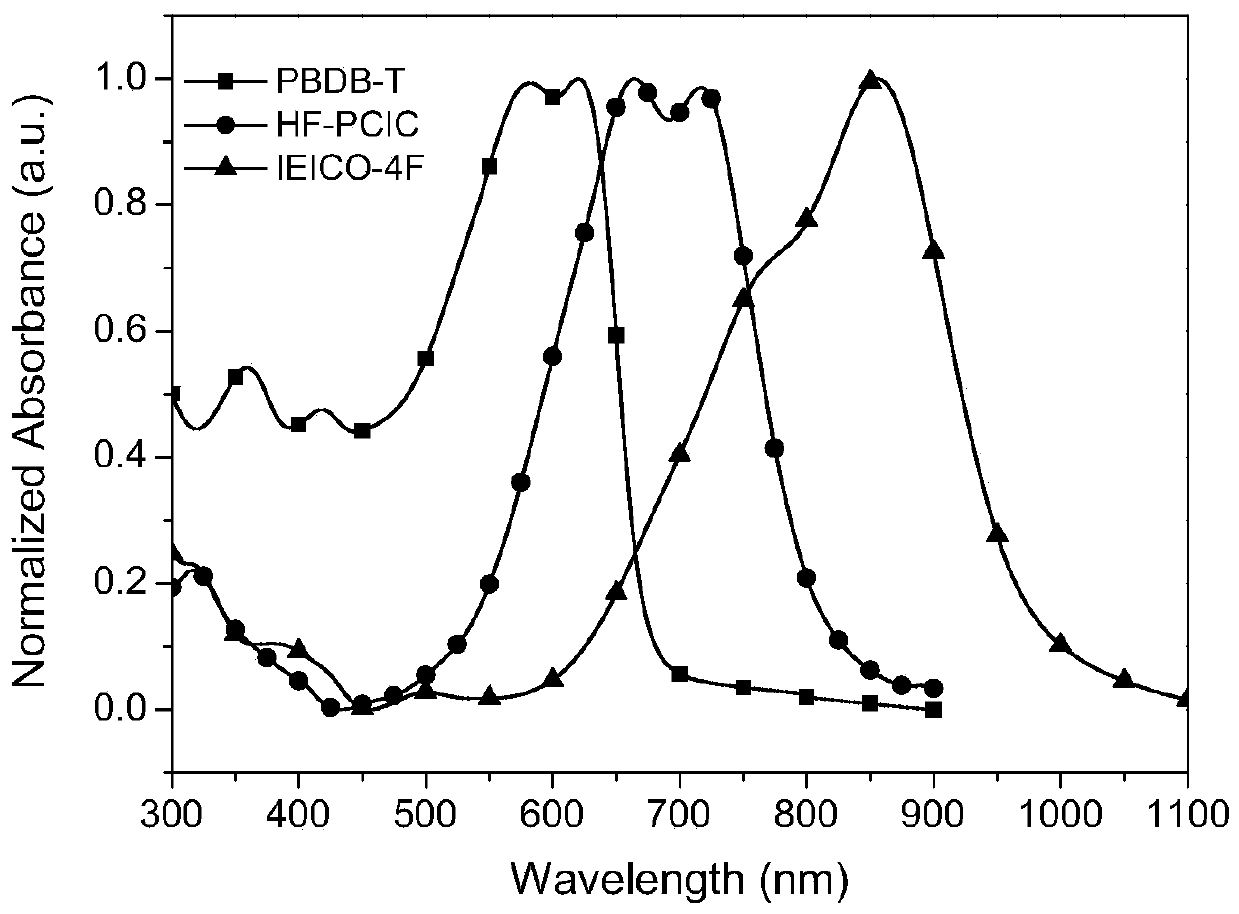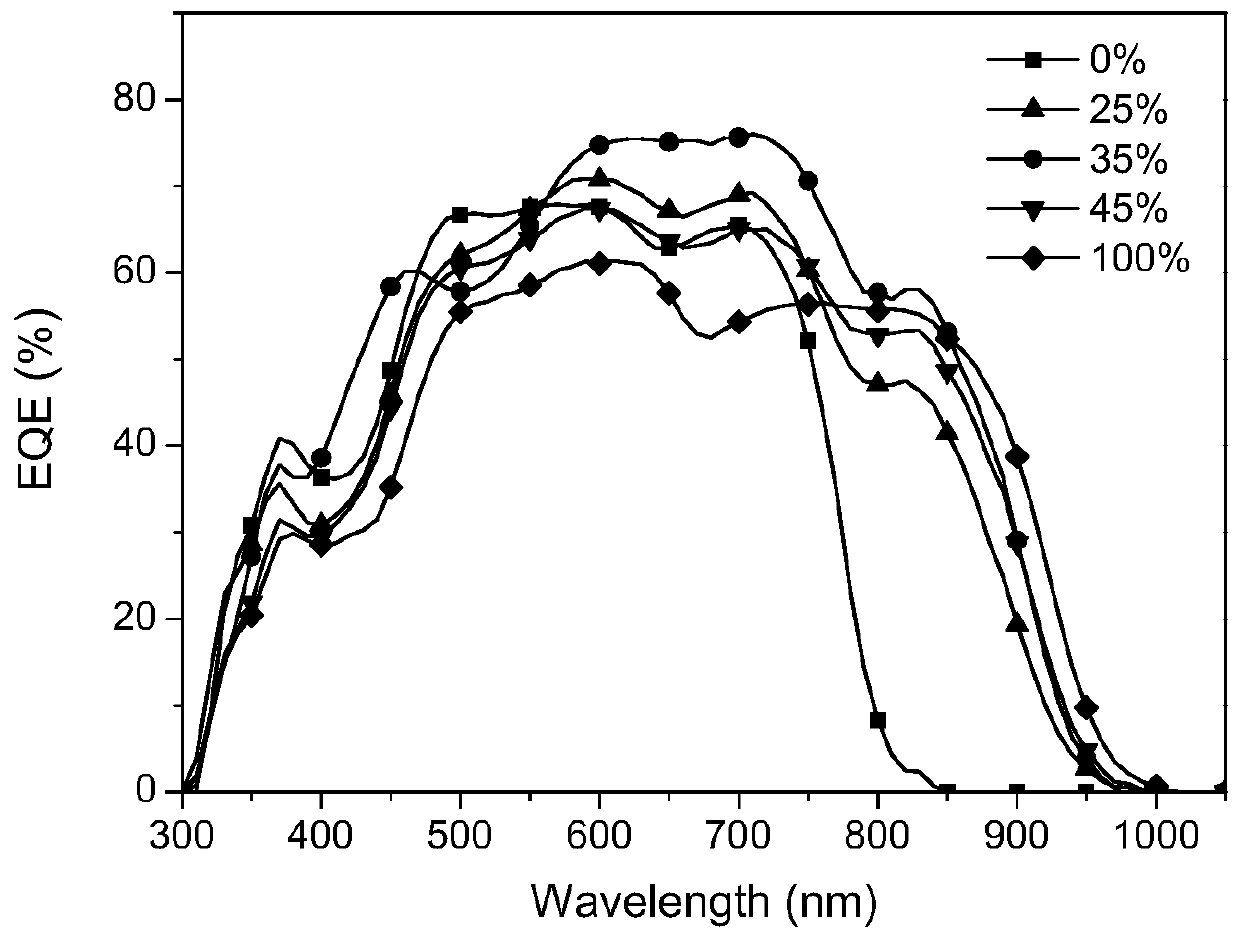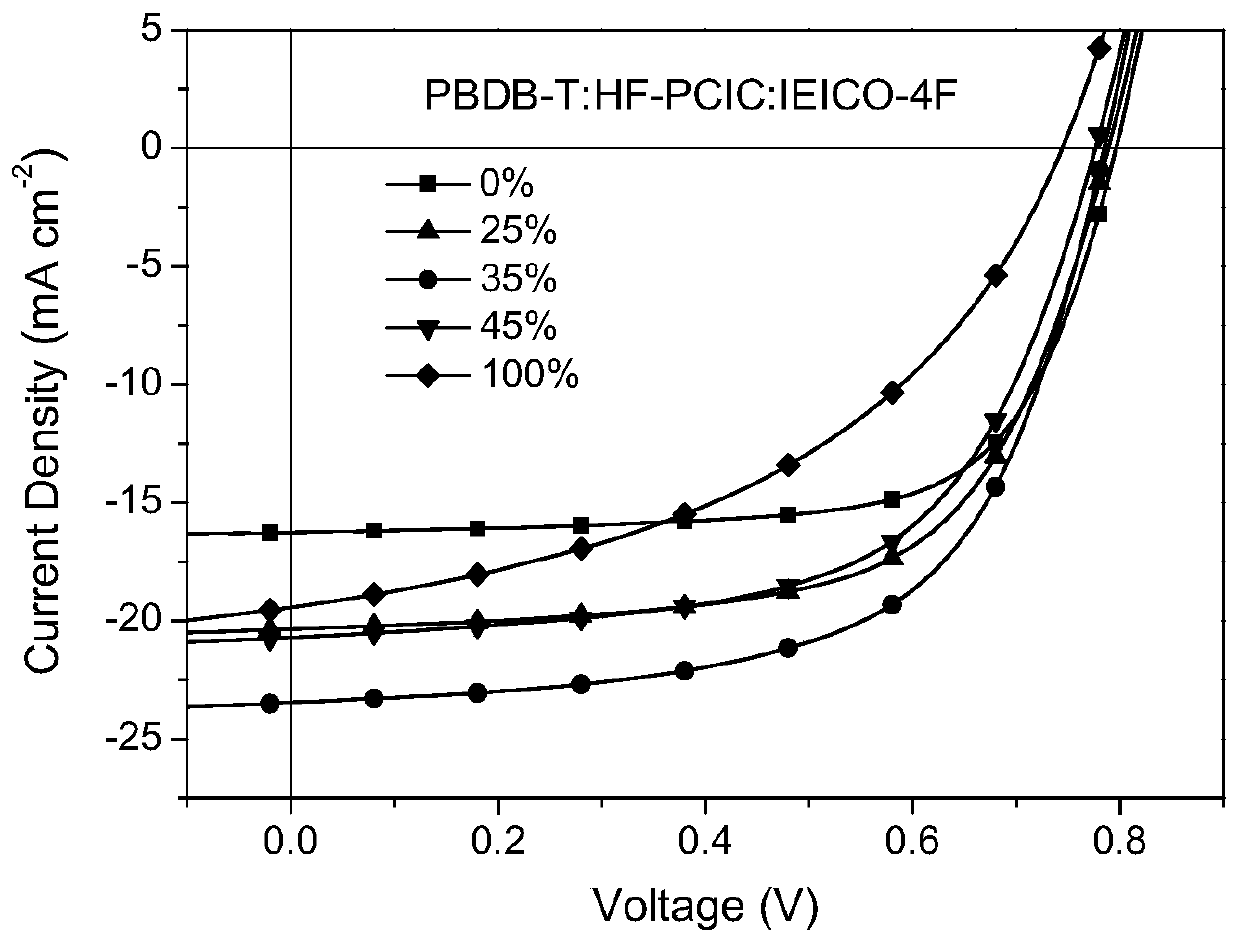A high-efficiency ternary organic solar cell
An organic solar cell, high-efficiency technology, applied in the field of solar cells, can solve the problems of damage, limit the short-circuit current density and efficiency improvement of the battery, and high open-circuit voltage
- Summary
- Abstract
- Description
- Claims
- Application Information
AI Technical Summary
Problems solved by technology
Method used
Image
Examples
Embodiment 1
[0019] The transparent conductive glass with strip-shaped ITO (cathode) etched on the surface is cleaned with cleaning agent, deionized water, acetone and isopropanol by ultrasonic oscillation, dried, and then treated with ultraviolet ozone for 15 minutes; A layer of ZnO was spin-coated at 3500 rpm for 60 seconds, and then annealed at 170° C. for 20 minutes. Then the sheet was transferred to a glove box, and a layer of PFN was spin-coated on the ZnO with a 0.4 mg / mL PFN solution at a rotation speed of 3000 rpm and a spin-coating time of 60 seconds. Afterwards, the PBDB-T:HF-PCIC weight ratio of 1:1, the total concentration of 20mg / mL PBDB-T, HF-PCIC mixture, with the speed of 2000rpm, spin coating for 60 seconds to obtain a layer of 100nm thick active layer. Finally, a layer of MoO with a thickness of 10 nm was evaporated with an evaporation apparatus. 3 interface layer and a 100nm thick Ag electrode (anode), resulting in an effective area of 6mm 2 organic solar cells.
...
Embodiment 2
[0022] The transparent conductive glass with strip-shaped ITO (cathode) etched on the surface is cleaned with cleaning agent, deionized water, acetone and isopropanol by ultrasonic oscillation, dried, and then treated with ultraviolet ozone for 15 minutes; then on the surface of the conductive glass A layer of ZnO was spin-coated at 3500 rpm for 60 seconds, and then annealed at 170° C. for 20 minutes. Then the sheet was transferred to a glove box, and a layer of PFN was spin-coated on the ZnO with a 0.4 mg / mL PFN solution at a rotation speed of 3000 rpm and a spin-coating time of 60 seconds. Afterwards, the PBDB-T:HF-PCIC weight ratio of 1:1.2, the total concentration of 20mg / mL of PBDB-T, HF-PCIC mixture, with the speed of 2000rpm, spin coating for 60 seconds to obtain a layer of 100nm thick active layer. Finally, a layer of MoO with a thickness of 10 nm was evaporated with an evaporation apparatus. 3 interface layer and a 100nm thick Ag electrode (anode), resulting in an e...
Embodiment 3
[0025]The transparent conductive glass with strip-shaped ITO (cathode) etched on the surface is cleaned with cleaning agent, deionized water, acetone and isopropanol by ultrasonic oscillation, dried, and then treated with ultraviolet ozone for 15 minutes; then on the surface of the conductive glass A layer of ZnO was spin-coated at 3500 rpm for 60 seconds, and then annealed at 170° C. for 20 minutes. Then the sheet was transferred to a glove box, and a layer of PFN was spin-coated on the ZnO with a 0.4 mg / mL PFN solution at a rotation speed of 3000 rpm and a spin-coating time of 60 seconds. Afterwards, the PBDB-T:HF-PCIC weight ratio of 1:1.5, the total concentration of 20mg / mL of PBDB-T, HF-PCIC mixture, with the speed of 2000rpm, spin coating for 60 seconds, to obtain a layer of 100nm thick active layer. Finally, a layer of MoO with a thickness of 10 nm was evaporated with an evaporation apparatus. 3 interface layer and a 100nm thick Ag electrode (anode), resulting in an e...
PUM
 Login to View More
Login to View More Abstract
Description
Claims
Application Information
 Login to View More
Login to View More - R&D
- Intellectual Property
- Life Sciences
- Materials
- Tech Scout
- Unparalleled Data Quality
- Higher Quality Content
- 60% Fewer Hallucinations
Browse by: Latest US Patents, China's latest patents, Technical Efficacy Thesaurus, Application Domain, Technology Topic, Popular Technical Reports.
© 2025 PatSnap. All rights reserved.Legal|Privacy policy|Modern Slavery Act Transparency Statement|Sitemap|About US| Contact US: help@patsnap.com



